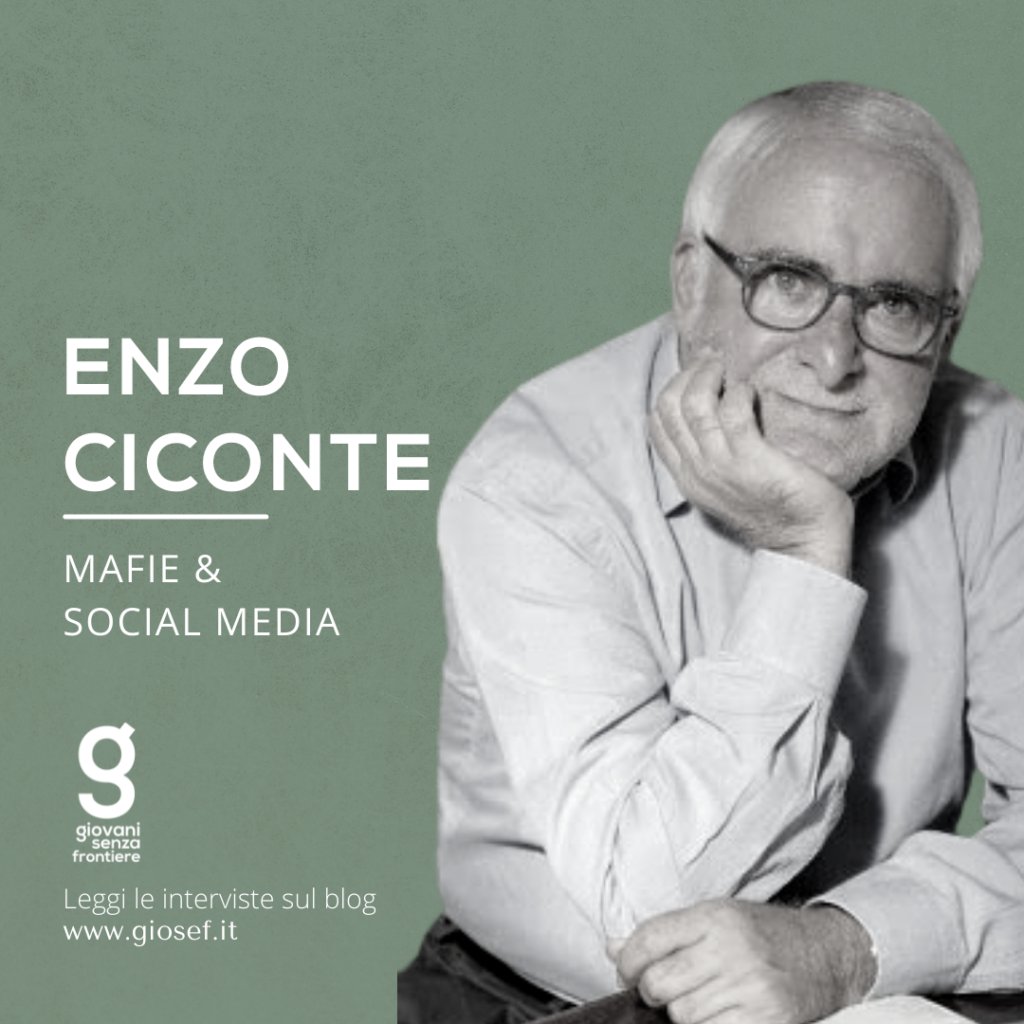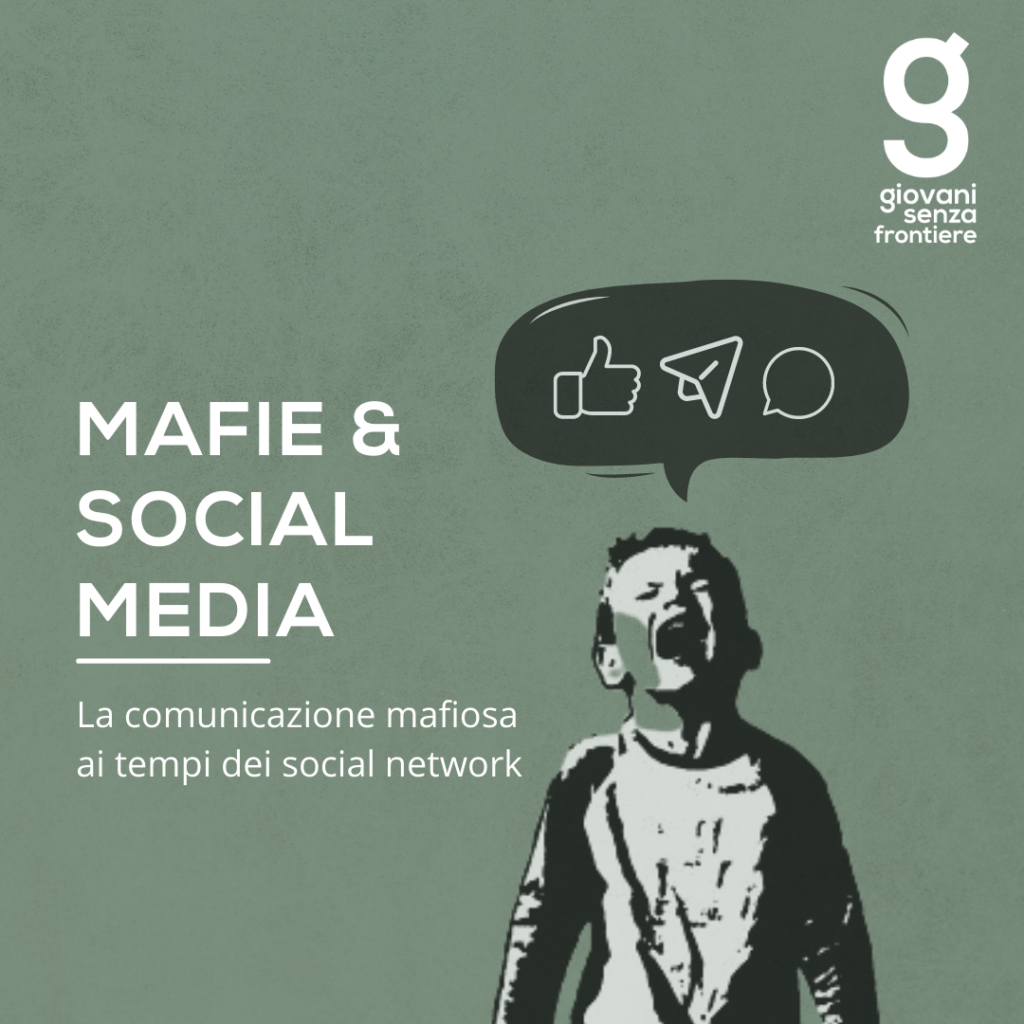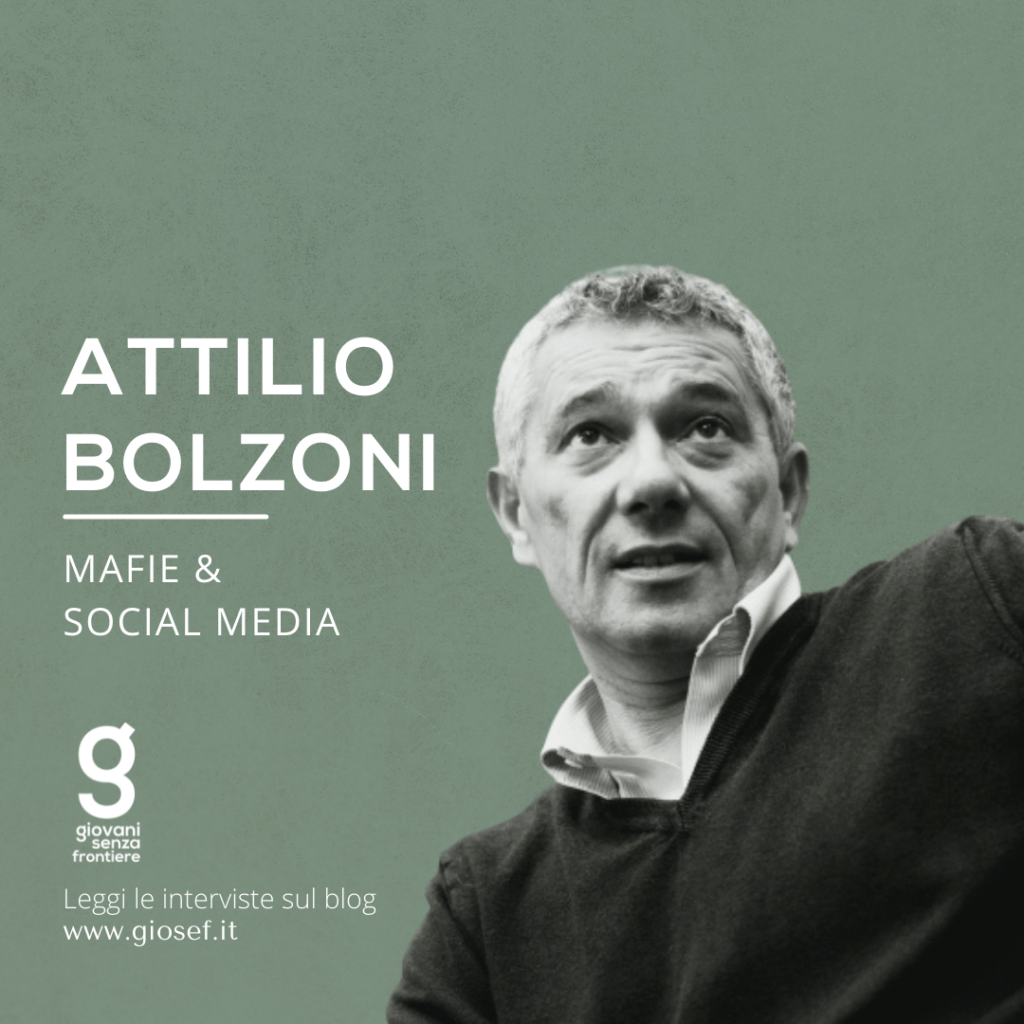Professor Enzo Ciconte is a teacher of the history of organised crime at the University of Roma Tre and of the history of Italian mafias at the University of Pavia. From 1997 to 2010 he was a consultant to the Anti-Mafia Parliamentary Commission and his 1992 book “‘Ndrangheta dall’unità ad oggi” is the first historical study on the ‘ndrangheta. In general, all his books paint a lucid and accurate picture of the Italian mafia.
We take our cue for this conversation from his latest work “Dall’omertà ai social: come cambia la comunicazione delle mafie“, Edizioni Santa Caterina, in which numerous aspects of the mafia phenomenon in our country are analysed.
Let’s start with the title of the first chapter of the book, which says ‘you have to listen to their silences to understand the mafia’. What does it mean?
“I mean something very simple: we must imagine the mafia organization as a secret organization.
Secret for many, but secret, above all, for the forces of law and order, for the magistrates, not for the citizens who must know it.
Silence in mafia organization is important for at least two reasons:
The first: the affiliate, who becomes “mafioso”, “ ‘ndranghetista “, “camorrista”, must maintain silence in the activities of his own organization. So, you must not talk about it with anyone.
The second reason: there is a silence that envelops the mafia organisation, which is the silence of the victims, who do not speak and do not denounce and the silence of those who are bribed by the mafia organisations; it is the silence maintained for centuries on women, who were considered totally extraneous to the mafia organisation and it was not true.
It is the silence of the church on mafia organisations, so it is a silence that involves a lot of people.
If you don’t study these things, you won’t understand the mafia organisations, if you don’t study the relationship between the mafia and the silence of the church, you won’t understand why over the centuries, especially when the church counted, counted a lot in society, they said nothing about the mafia.
That’s why I say if you want to understand the mafias you have to understand the silence”.
Ancient and ultra-modern, how has the communication of the ndrangheta changed over the years?
“The communication of the ndrangheta, but not only of the ndrangheta, this concerns also the Sicilian mafia and the Neapolitan camorra, has changed because the society has changed.
We must not make the mistake of thinking that the mafiosi live in the hyperuranium, that they are not touched by the changes of the society, and that they live in a world completely detached from what happens among us. This is not the case.
The language has changed, but in certain aspects, a part of the nature of the ndrangheta has changed.
Once, the ndrangheta was silence. “A megliu parola, e chilla chi non si dice”, the best word is that which is not said.
But now, it is exactly the opposite. Now, mafiosi are on Facebook, they post their pictures, they say the things they want to say, they make little films, they show weapons, they show the capacity of wealth that they have, that is, they communicate as we do. Right now, the young people who are reading this, could not imagine their lives without a mobile phone, so why should the mafiosi who are part of this society, who are among us, do so? It is not that young mafiosi are different from normal young people, they are different in the sense that they are mafiosi, but their customs are identical to those of their peers, their tastes are identical.”
Are these young mafiosi who use social networks and all the tools that the Internet makes available today aware of the danger to which they expose themselves by leaving their traces on the web? Or are they not aware of it and are they using these tools in the face of possible reports from the authorities?
“They are aware and at the same time unaware. It means that they know very well that in any case the authorities are tracking them. I don’t think any of them imagine that they will remain free from investigation.
They are aware, but they want to obtain consent anyway.
They want to convince other young people to choose that path.
Nowadays, they have understood that more than formal meetings, more than the bravado in the square, it is important to show themselves to young people, in order to make them change their lives, because young people want always have the desire to change them.
They also want to show these young people that they have reached a point of wealth and power because of their belonging.
So, the message that these videos, these films, these photographs send is exactly this: to try to get these young people on their side.
They seek consensus, they tell the others what they do when they are good, that their parents, their brothers who are in jail, are completely innocent.
On the other hand, have you ever seen a guilty mafioso?
Mafiosi are not all intelligent, they are also idiots, and, luckily, there are idiots that get caught.
Some fugitives, for example, took a picture of themselves, posted it on their profile, on the profile of some of their friends, showing the big five-star hotel behind them, not knowing that in this way they would be caught, in fact they were caught, because by looking at the hotels, police then understands where they are.
What is this? It’s showing off.
Today, unfortunately, we live in the society of images, if you are not on television, if you are not on Facebook, you are nobody, you think you are worth nothing, and obviously all this is not true.
But for them, for nowadays mentality, it seems to be true. “
By the way, there is another suggestion that also emerges from the pages of his book and it is to talk about music. We can cite the emblematic case of that video clip Glock21 shot in Rosarno, in which these young people from Calabria show themselves with guns, saying terrible things. And if under a video where there are young people with Kalashnikovs, shouting “long live the mafia”, there are comments saying “thank you, because in this way you bring our culture online”, that is a real problem”.
What is the danger for young people of this freedom, this little control that exists in tools such as YouTube and Facebook?
If everyone can post whatever they want and there is no control of the content, isn’t there a risk of creating an uncontrollable phenomenon of online proselytism?
“Yes, even though as long as you don’t commit a crime you can’t prevent it from happening, because otherwise there would be unacceptable censorship.
We have to fight with the weapons of democracy, I think we can do it because these imbeciles are fortunately not the majority, they are the minority.
We have the opportunity to see them, to know and then explain to young people that this is a wrong attitude, an incorrect attitude that must be changed.
In Calabria there was a period, and there still is, of cassette tapes production.
There were some CDs, cassettes, which praised the ‘ndrangheta, the old ‘ndrangheta, shown as a sort of Robin Hood who steals from the rich to give to the poor; blood and honour, a stain of honour must be washed with blood: a whole series of things of the old ‘ndrangheta which have never existed, except in a small part.
But it is the mythology of the old ‘ndrangheta which is carried ahead.
Naturally, if these words are accompanied by the music of the tarantella, it is clear that it is catchy.
The tragedy is that this thing here has not only worked in the province of Reggio Calabria, but even in Germany.
In Germany, for a few weeks, these ‘ndrangheta tarantellas occupied the top charts of the German hit parade. So, everybody goes and buys the cassettes of the ‘ndrangheta which, I repeat, is an old ‘ndrangheta, the bandit Musolino, who was unjustly condemned, that is, a whole series of these songs which, among other things, link the Aspromonte to the ‘ndrangheta. In short, old rubbish, which, however, has an element of reality in them“.
Given your experience in the Parliamentary Commission, we are talking about a higher level, about a conversation that has a chance of changing things, in which way mafia has been able to update itself? Are there any investigations, journalistic enquiries, political reflections that have arisen from your reflection?
“I think not, especially not today, because people don’t care about the mafia.
Just this morning, I was reading the reflection of the Chief of Police of Naples, who said that nobody cares about the Camorra anymore.
Quaestor Giuliano, the son of Boris Giuliano, who was killed by the Sicilian Mafia, said that nobody gives a damn about the Camorra in Naples any more. But right now, let’s face it, it’s hard for people to care about the mafia and it’s understandable that they do, because everyone is worried about the ongoing pandemic.
The same thing happened in the 70’s, when there was terrorism.
It was a terrible season, people did not go out of their homes, they were afraid, they stayed locked up.
In fact, terrorism was fought on two levels: the judicial level, of course, the level of repression and then there was a revolutionary level: the councillor of the Municipality of Rome, Renato Nicolini, projected a series of films at the Basilica of Maxentius and a lot of people came.
The message was: ‘the terrorists want us all in, we must go out to regain our freedom, our self-determination’.
But at that time no one thought of the Mafia. In fact, in the 70s and 80s, the Mafia reached the highest levels. If we think that on 6 January 1980, the mafia killed the President of the Regional Council of Sicily, Piersanti Mattarella, we understand that we are at a very high level of mafia presence. Two years earlier, the President of the Christian Democracy, Aldo Moro, had been kidnapped, abducted and then killed, so, faced with these phenomena, these elements, the mafia had a free hand.
Today, we are more or less in the same situation. This does not mean that mafiosi are standing still, no! Mafiosi are doing their part, but I believe that also the magistracy has understood certain things and I imagine that it is doing some work.
Otherwise, I don’t see much capacity in politics. “
Let us make a final reflection on the need for a change in anti-mafia communication. Because if it is true that the mafia evolves, perhaps also the anti-mafia must find new languages, new instruments to fight it.
How is it possible that in law school, in Palermo, the same faculty where Doctor Falcone and Doctor Borsellino graduated, anti-mafia legislation is a subject of choice?
Why is there no awareness that studying history and the tools we have equipped ourselves with is not considered fundamental by our Ministry of Education, by those who decide the ministerial programmes of the University?
“It is the same question I asked myself many many years ago. And I put it to a Minister of Education asking why they did not set up chairs for the history of the mafia. He replied that this would enhance them and give them credit.
Actually, mafia presence is already in universities because, in the first place, there are some professors who sell their grades, who sell their exams to mafiosi; they are even mafiosi themselves.
However, they didn’t. In my own small way, exactly 15 years ago, I proposed to the University of Roma Tre to do a course on the history of Italian mafia. I was told it was a too harsh title, so we agreed on ‘history of organised crime’.
In addition to the Rector, the heads of some departments, the President of the Anti-Mafia Commission, the heads of the opposition groups in the Anti-Mafia Commission, and the then Public Prosecutor of Palermo, Pietro Grasso, came, and then he spoke to the students all afternoon.
In addition, I have been doing a course for 10 years now in Pavia, “history of the Italian mafias” and it is at the university college Santa Caterina da Siena in Pavia . It is an optional course, it is offered to students of Political Science, Law, Literature and Economics.
The course is attended mostly by students of the judiciary because they know about law, because they know that this is an important exam for them, if they want to understand the mafias and in order to understand the historical evolution, because, by now, it is no longer a problem of the South, it is also a problem of the North, unfortunately, and a future magistrate must understand these things.
The other thing that must change is journalism. Because journalism has sat on the anti-mafia story. What does journalism do? The news is always the same, because they take the tissue of the Prosecutor’s Office and they do not go deeper. They are not the ones to indicate, to make serious anti-mafia investigations, which do not concern only what the Public Prosecutor’s Office, which can also be wrong. But the journalist must not play the role of tissue.
It must have the ability to give the reader a different view from that of the Prosecutor, because there are also some behaviours that are not criminally relevant.
Let us return to the discourse of the cassettes, let us return to the discourse of the songs.
A magistrate cannot do anything about it. But a journalist can tell his readers that in that neighbourhood of Naples, in that neighbourhood of Rome, in that building site of Reggio Calabria or Palermo, there are these songs, there are these videos, there are these initiatives.
They could offer citizens the knowledge of a phenomenon that is maturing, that is changing.
But if the journalist doesn’t say so, if he doesn’t get his hands dirty with these enquiries, these investigations, he simply acts as a scribbler, copying and pasting what is in the custody order, and in my opinion this is not good”.
So I really hope that his example, that of the Pavia college, can also be replicated in Palermo so that young jurists can have the tools to know and fight the mafias.
“I hope so too. There is another little book that we did with the College of Santa Caterina, which concerns Giovanni Falcone. Reading that book, some curious, particular, intriguing events come out, which make you see Falcone as a man, not simply as a magistrate.
I give only two examples: The first story was told to us by Judge Guarnotta, who was part, like Falcone, of the anti-mafia pool. Well, he tells us how Falcone, going to dinner with other magistrate colleagues, started to attack his own colleagues with bread balls. So you can imagine what happened when Doctor Falcone threw the ball and his fellow magistrate replied with equal force with other balls. It was a way of relieving tension.
Or another story, this time told by Carabinieri General Angelo Pellegrini. It is the story of one evening when they were in Rome, both escorted. They obviously had different escorts, but they slept in the same hotel a little outside Rome.
And in the evening, when they had finished working, they went back to the hotel, the escorts took the two of them to their rooms and went to sleep. That evening, Falcone called Angelo Pellegrini and said: “General, I’ll see you in the lobby”. The General goes down to the Hall and they take a walk through the streets of Rome, like two normal citizens. In Rome he could do it because obviously not everyone knew him, in Palermo such a thing would have been unthinkable, but it gives you the human dimension, it gives you the dimension of a man who doesn’t want to be surrounded all the time by these escorts who take him everywhere, he wants to walk like a simple citizen together with a friend, through the streets of Rome.”
The next appointment of our Mafie & Social Media column will feature Professor Davide Bennato, professor at the University of Catania (DISUM Department of Humanities) where he teaches Sociology of Cultural and Communicative Processes, Sociology of Digital Media and since the Academic Year 2020-21, Digital Sociology
In the coming weeks we will publish all the content produced on our blog and social channels: Facebook ed Instagram.
The complete video interviews will be available on the Giosef italy Youtube channel.



